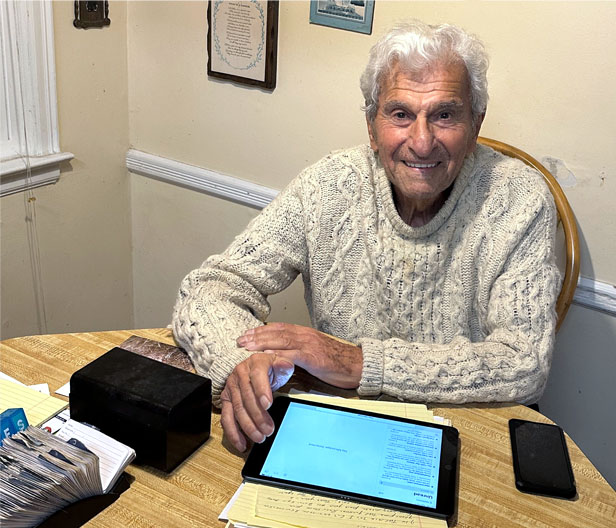So often, we celebrate the new and the novel, the young and the up-and-coming. But there’s something to be said for stopping to recognize the veteran voices, the ones whose wisdom comes from a deep well of experience and hard-fought triumphs. There are so many who find promotional products, fall in love and make it their life’s work. Why not celebrate that?
So, that’s exactly what we’re doing. We reached out to 10 industry lifers, each of whom have been in promo for at least 40 years and are still actively working. They share their best advice, what they’ve learned, reflect on how things have changed over the years and what keeps them motivated and engaged.
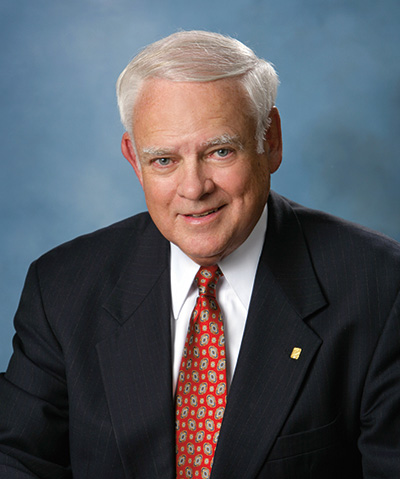
Bill Bywater
Bankers Advertising Company (asi/131650)
Years in Promo: 62
What’s your best advice?
“Always be eager to learn because there’s so much to learn. Don’t be afraid to put in the extra effort. Think outside the box. The more you do that, the more successful you are. People are looking to us for creative solutions.”
Bill Bywater wasn’t originally thrilled with the idea of joining the family business – Bankers Advertising, the Iowa City, IA-based distributor that’s been around for more than 125 years and was the recipient of Counselor’s Distributor Family Business of the Year award in 2021. Instead, he says, he went to school to become a mechanical engineer.
What’s the biggest change you’ve seen in the industry since you started?
“Back in the day, we didn’t have direct dial phones. We didn’t have anything but parcel post that we couldn’t trace for three weeks. Copy machines and technology at that time were really antiquated by today’s standards. Technology has impacted all facets of production, marketing and sales – everything. And the other thing I think is interesting is that women are now dominant, at least in the sales side of this business. Our top salespeople used to be older men, but now it’s ladies who’ve developed a passion for this business, love cold-calling and presenting ideas and helping businesses to prosper.”
But the draw of what was then a fourth-generation family business was too strong and after completing a short stint with the military, Bywater went all in with Bankers in the early 1960s. There’ve been opportunities over the years for him to flex his engineering muscles – particularly when he decided to move his facility from an antiquated downtown building to a climate-controlled industrial site in the mid-1980s. But he also discovered a great love for the promo industry and the people involved in it that’s kept him active and engaged for more than six decades.
What’s an important lesson you’ve learned over the years?
“Once in a while, you have to manage your customer. They may go off on a tangent and want to do something you know you can’t do. You’ve got to explain to them that it doesn’t work that way. It’s going to work this way. Younger, newer salespeople tend to acquiesce to whatever a customer may demand. As you gain experience, you learn what can be done and what can’t be done and how to explain it to them. Take charge of the sale.”
Though his son David has taken over as firm president and general manager, Bywater is still chairman of the board and active in a sales role. “I’m watching my friends retire and ask me when I’m going to,” Bywater says. “They don’t understand why I haven’t, but when I come to the office, each day is like Christmas morning: What’s going to be under the tree? It isn’t all fun and games, but the things that don’t go like you want them to, that just means that those things that do are more meaningful.”
What keeps you motivated?
“The friendships that I’ve made from both the supplier and distributor side are something I will always treasure. It’s hard to describe how wonderful it’s been. Early on, I was told people come in the industry and stay, and I can certainly see why. … I have some customers that I’ve had since the day I first came to work.”
Retirement, the octogenarian says, is not likely in the cards for him. Just as his father continued going into the office until the day he died, Bywater says he plans to have a hand in Bankers Advertising in some form as long as he’s able. “Watching the exciting things going on in this business, I think that’s the lure,” he adds.
What’s your best advice?
“Always be eager to learn because there’s so much to learn. Don’t be afraid to put in the extra effort. Think outside the box. The more you do that, the more successful you are. People are looking to us for creative solutions.”
What’s the biggest change you’ve seen in the industry since you started?
“Back in the day, we didn’t have direct dial phones. We didn’t have anything but parcel post that we couldn’t trace for three weeks. Copy machines and technology at that time were really antiquated by today’s standards. Technology has impacted all facets of production, marketing and sales – everything. And the other thing I think is interesting is that women are now dominant, at least in the sales side of this business. Our top salespeople used to be older men, but now it’s ladies who’ve developed a passion for this business, love cold-calling and presenting ideas and helping businesses to prosper.”
What’s an important lesson you’ve learned over the years?
“Once in a while, you have to manage your customer. They may go off on a tangent and want to do something you know you can’t do. You’ve got to explain to them that it doesn’t work that way. It’s going to work this way. Younger, newer salespeople tend to acquiesce to whatever a customer may demand. As you gain experience, you learn what can be done and what can’t be done and how to explain it to them. Take charge of the sale.”
What keeps you motivated?
“The friendships that I’ve made from both the supplier and distributor side are something I will always treasure. It’s hard to describe how wonderful it’s been. Early on, I was told people come in the industry and stay, and I can certainly see why. … I have some customers that I’ve had since the day I first came to work.”
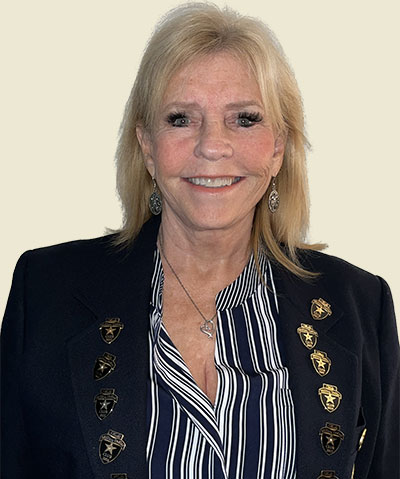
Linda Martinelli
Proforma Graphic PrintSource (asi/300094)
Years in Promo: 50
What’s your best advice?
“It’s about really caring, not just about the big orders, but the whole customer and anything that they need. The relationship still matters. Give them great and timely service. Those are the biggest things you can do. I get more customers because of the failure of my competitors to respond to someone in a timely manner.”
For Linda Martinelli, it’s always been about going the extra mile to give clients the personal touch. “I’m willing to take on those things that other people aren’t,” she says. An example? Martinelli recently put together an employee award gift for a company that required her to ship 7,000 high-end water bottles to 7,000 individual addresses – to virtually every country in the world. Many of the addresses provided to Martinelli were incorrect or incomplete, so she stayed up late into the night for weeks working with DHL and contacting individual recipients in India, China and other locales to correct their shipping addresses. “That was a huge project,” she recalls, but “we did it.”
What’s the biggest change you’ve seen in the industry since you started?
“When everyone consolidated. Everybody is buying everybody and making these giant companies.”
Martinelli has had that same can-do attitude since “back in the day” when her father owned a printing and office supply company. She helped him add promotional products to his lineup of services, then went on to work at several other office supply and printing companies. Eventually, however, she got tired of having to go through “such a chain of command to get anything done” and decided she could meet customers’ needs more quickly and efficiently by striking out on her own. So, she started her own promo firm in 1998 and never looked back.
What’s an important lesson you’ve learned over the years?
“I believe in constantly educating myself and keeping up on the industry and what’s new and who to buy from. Once you know that, you’re golden. If somebody asks me for something, and I know it’s not well made, I give them what they ask for, but present better options. They almost always take the options. If I didn’t take the time to educate myself and attend industry trade shows, I wouldn’t know what to recommend.”
“There are people in this industry who want to take that extra step, and people who want to do the very basic minimum,” Martinelli says. “I was always someone who wanted to take it a little further.”
What keeps you motivated?
“I still love the game. I still love serving people and finding just that right item for them that makes them really happy. To me, it’s never been about the money; it’s been about the whole picture of finding people the perfect thing and making them happy and the money will come.”
What’s your best advice?
“It’s about really caring, not just about the big orders, but the whole customer and anything that they need. The relationship still matters. Give them great and timely service. Those are the biggest things you can do. I get more customers because of the failure of my competitors to respond to someone in a timely manner.”
What’s the biggest change you’ve seen in the industry since you started?
“When everyone consolidated. Everybody is buying everybody and making these giant companies.”
What’s an important lesson you’ve learned over the years?
“I believe in constantly educating myself and keeping up on the industry and what’s new and who to buy from. Once you know that, you’re golden. If somebody asks me for something, and I know it’s not well made, I give them what they ask for, but present better options. They almost always take the options. If I didn’t take the time to educate myself and attend industry trade shows, I wouldn’t know what to recommend.”
What keeps you motivated?
“I still love the game. I still love serving people and finding just that right item for them that makes them really happy. To me, it’s never been about the money; it’s been about the whole picture of finding people the perfect thing and making them happy and the money will come.”
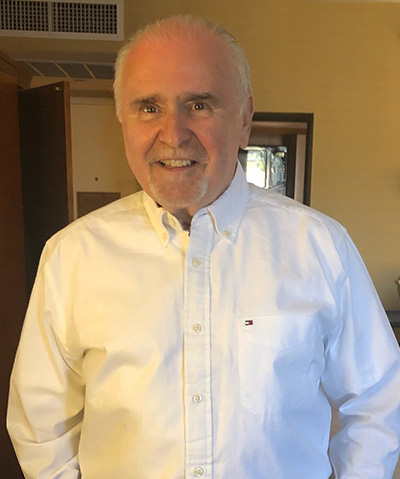
Robert Collins
Collins & Associates (asi/821435)
Years in Promo: 49
What’s your best advice?
“I’ve always said, ‘This isn’t rocket science.’ You find the need, you fill the need and you’ve got the order. But you’ve got to be a little more proactive in today’s marketplace. End-buyers are more sophisticated and have more resources at their fingertips. If you want to make that sale, you have to know your client a little more intimately. You’ve got to know what their needs are.”
Robert Collins found the promo industry by accident. He was in a phone booth (remember those?) to follow up on an interview with a prospective employer, when he looked down and saw a classified ad for an opportunity with Paper Mate. “I’m a pen lover,” Collins says. “I have been for years. I love writing instruments.”
What’s the biggest change you’ve seen in the industry since you started?
“When I started, they had salespeople selling out of the trunk of their car, and some of them had engraving machines and would scratch a client’s name on an item and sell it right on the spot.”
He became West Coast regional manager in Paper Mate’s advertising specialty division, and hasn’t looked back, starting his own multi-line rep business in 1980. “It’s been magical ever since,” Collins says. “It’s not just my livelihood; it’s my life.”
What’s an important lesson you’ve learned over the years?
“Our business encompasses so much. We don’t sell pens and mugs. I don’t want to sell products. I’m in the advertising business. It’s the message. Humans love things not just for free, but they love things with a message. It’s a please and thank-you business; that’s how I look at it.”
Being on the road – going from hotel to hotel – has been one of the biggest challenges of his career, but overall, the positives have outweighed the negatives. The biggest positive? “The friendships I’ve made over the years,” Collins says. “Most of these people, they’re like family.” Some of those friendships, he adds, are going into the second and even third generations of promo families.
What keeps you motivated?
“Everybody I call on is on commission. We’re commission people. It’s a challenge, but it’s rewarding. To help somebody succeed, that’s what keeps me going. When you find a passion or something you love, how do you give that up?”
Though there have been a lot of changes in promo over the nearly five decades Collins has been part of it, he believes there’s always going to be a need for branded items to support advertising efforts. “Regardless of what business you’re in, if you don’t advertise that business, sooner or later you’re going to advertise that business for sale,” Collins says.
What’s your best advice?
“I’ve always said, ‘This isn’t rocket science.’ You find the need, you fill the need and you’ve got the order. But you’ve got to be a little more proactive in today’s marketplace. End-buyers are more sophisticated and have more resources at their fingertips. If you want to make that sale, you have to know your client a little more intimately. You’ve got to know what their needs are.”
What’s the biggest change you’ve seen in the industry since you started?
“When I started, they had salespeople selling out of the trunk of their car, and some of them had engraving machines and would scratch a client’s name on an item and sell it right on the spot.”
What’s an important lesson you’ve learned over the years?
“Our business encompasses so much. We don’t sell pens and mugs. I don’t want to sell products. I’m in the advertising business. It’s the message. Humans love things not just for free, but they love things with a message. It’s a please and thank-you business; that’s how I look at it.”
What keeps you motivated?
“Everybody I call on is on commission. We’re commission people. It’s a challenge, but it’s rewarding. To help somebody succeed, that’s what keeps me going. When you find a passion or something you love, how do you give that up?”
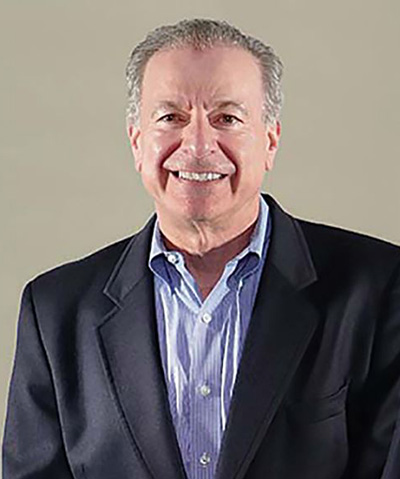
Ira Neaman
Vantage Apparel (asi/93390)
Years in Promo: 46
What’s your best advice?
“At the end of the day, the one constant that’s occurred all the way through, whatever the changes might be, is that relationships matter. Relationships, reliability and trust – those are the three tenets of how you build a business, and that hasn’t changed.”
Back in the 1970s, when the printed T-shirt began its meteoric rise to pop culture dominance, Ira Neaman took note. “T-shirts were just starting to become a communications vehicle, and the feeling was that there should be a market for better apparel – like a polo shirt with a logo – that could be used in a corporate sense,” he says. “That was the inspiration, and then it was just a question of figuring out how to make the garment, how to get the decoration done and find the customers.”
What’s the biggest change you’ve seen in the industry since you started?
“Probably the two biggest changes are technology and people’s expectations for turn-around time. Umpteen years ago, you walked around with scissors and a stapler at a show. If you didn’t have a stapler, people would look at you like you failed. With turn times, decades ago, six to eight weeks was OK. Then four to six weeks became the norm, then three to four. And today, we’re pretty much on a 24-hour cycle.”
In the early days, Neaman would purchase fabric, have shirts made-to-order locally and then customize them with a direct embroidered logo. He also had a lot of seemingly simple business lessons to learn: “At my first trade show when I exhibited, I didn’t know you had to buy a booth. I thought it was included,” Neaman recalls. “That’s the amount of naivete I had early on, which I guess I made up for by my enthusiasm.”
What’s an important lesson you’ve learned over the years?
“I think of the promotional products distributor as kind of like an interior designer. If you want to open a restaurant, you can go online and buy tables and chairs and just throw them in the room, and however it comes out, it comes out. But if you want to create an ambiance or an objective or an experience, then you’re going to get somebody who trained in doing that. Promotional products distributors are creative problem-solvers achieving a marketing need.”
Apparel made up a much smaller portion of the industry in those days, with many uninterested in dealing with hassles like sizing – things that can be avoided when you focus on hard goods. But as technology advanced and more people understood the power of being a walking billboard – not to mention the growth of casual apparel – the wearables segment of promo mushroomed, bringing suppliers like Vantage Apparel along for the ride. Polo shirts are now the third-largest product category in the industry – tied with caps and headwear – representing 9.4% of distributor promo revenue. (Number one? T-shirts, of course.) Vantage is a stalwart on the Top 40, and Neaman himself has made an appearance on the Counselor Power 50 list 17 times.
What keeps you motivated?
“Every day is different. Every day is fun. I’m so fortunate that my vocation and avocation are the same. There’s never been a day where I haven’t enjoyed going to work.”
What’s your best advice?
“At the end of the day, the one constant that’s occurred all the way through, whatever the changes might be, is that relationships matter. Relationships, reliability and trust – those are the three tenets of how you build a business, and that hasn’t changed.”
What’s the biggest change you’ve seen in the industry since you started?
“Probably the two biggest changes are technology and people’s expectations for turn-around time. Umpteen years ago, you walked around with scissors and a stapler at a show. If you didn’t have a stapler, people would look at you like you failed. With turn times, decades ago, six to eight weeks was OK. Then four to six weeks became the norm, then three to four. And today, we’re pretty much on a 24-hour cycle.”
What’s an important lesson you’ve learned over the years?
“I think of the promotional products distributor as kind of like an interior designer. If you want to open a restaurant, you can go online and buy tables and chairs and just throw them in the room, and however it comes out, it comes out. But if you want to create an ambiance or an objective or an experience, then you’re going to get somebody who trained in doing that. Promotional products distributors are creative problem-solvers achieving a marketing need.”
What keeps you motivated?
“Every day is different. Every day is fun. I’m so fortunate that my vocation and avocation are the same. There’s never been a day where I haven’t enjoyed going to work.”

Norman Stalarow
Buffalo Specialties (asi/149870)
Years in Promo: 44
What’s your best advice?
“I came to this epiphany at some point: You don’t want to be like your dad and think penny loafers looked good in 1965, and they still look good. You have to be able and willing to accept change.”
Norman Stalarow got his start in the promo industry in the late 1970s. He saw a heat-printing business in the mall and decided that’s what he wanted to do as well. “I built my first screen-print one-color machine in my dad’s garage and would use their oven to dry my heat transfers,” he recalls.
What’s the biggest change you’ve seen in the industry since you started?
“Social media and technology have really changed our industry. Some of our older, good salespeople, they don’t even have a Facebook page, and I’m like, ‘You’re wrong.’ If you get stuck in your mind that it’s your way or the highway, you’re going to fail. … We do a lot of business with social media influencers. It’s crazy the money these people have.”
Business “just kind of grew” from those humble beginnings, the Houston man says. “I got in at a time when it was good to get in,” he adds. Today, Buffalo Specialties boasts about 65 employees, and Stalarow has led his team to take on national accounts and large-scale projects through what his son Micah calls a combination of “grit and wit.”
What’s an important lesson you’ve learned over the years?
“Years ago, I had someone call me from an oil company I’d never heard of, and she needed three small, three medium and three large jackets. I thought, ‘What a pain.’ I was a little negligent in getting the items to her. But two weeks after I finally got them to her, she called back, and said, ‘OK, we’re ready to order.’ The first ones were just for sizing. It turned out to be a huge order – hundreds and hundreds of jackets. You never know what’s going to hit. Just because they’re not a pretty package, doesn’t mean there’s not a lot inside them.”
Stalarow describes himself as a natural salesperson, recalling how he was once known as “the doormat king” because he came up with the idea of selling doormats to apartment complexes – with the thought that six months after the first order, rental companies would place reorders to swap out worn doormats, turning it into a sort of annuity for the salesperson who had closed the initial deal. “We used to do almost every doormat for every complex,” Stalarow says. “I used to tell everyone in this industry, you’re only limited by your pocketbook and your imagination.”
What keeps you motivated?
“Really, I think it’s a personality thing. There’s no desire in me to ever stop learning, no desire to ever stop growing. I think it’s from a fear that I don’t ever have enough. This can all go away tomorrow. … I think you have to run scared. I run scared.”
What’s helped him thrive over the last 40-plus years is a willingness to adapt and change, a penchant for forging lasting friendships across generations and the habit of surrounding himself with smart people. “Anybody can be president of this country,” he says. “All they’ve got to do is be smart enough to know you don’t want to be the smartest person in the room.”
What’s your best advice?
“I came to this epiphany at some point: You don’t want to be like your dad and think penny loafers looked good in 1965, and they still look good. You have to be able and willing to accept change.”
What’s the biggest change you’ve seen in the industry since you started?
“Social media and technology have really changed our industry. Some of our older, good salespeople, they don’t even have a Facebook page, and I’m like, ‘You’re wrong.’ If you get stuck in your mind that it’s your way or the highway, you’re going to fail. … We do a lot of business with social media influencers. It’s crazy the money these people have.”
What’s an important lesson you’ve learned over the years?
“Years ago, I had someone call me from an oil company I’d never heard of, and she needed three small, three medium and three large jackets. I thought, ‘What a pain.’ I was a little negligent in getting the items to her. But two weeks after I finally got them to her, she called back, and said, ‘OK, we’re ready to order.’ The first ones were just for sizing. It turned out to be a huge order – hundreds and hundreds of jackets. You never know what’s going to hit. Just because they’re not a pretty package, doesn’t mean there’s not a lot inside them.”
What keeps you motivated?
“Really, I think it’s a personality thing. There’s no desire in me to ever stop learning, no desire to ever stop growing. I think it’s from a fear that I don’t ever have enough. This can all go away tomorrow. … I think you have to run scared. I run scared.”
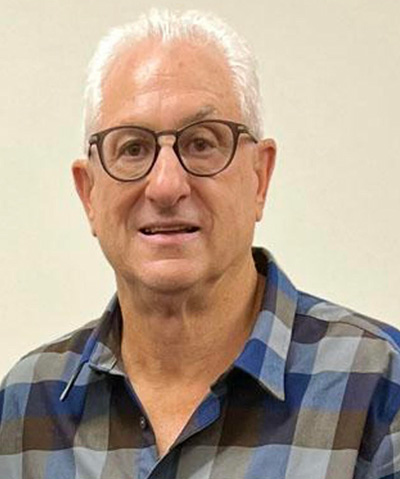
Les Dorfman
Galaxy Balloons (asi/55675)
Years in Promo: 44
What’s your best advice?
“Younger people who come in need to spend more time educating themselves on the industry itself. I think industry education is still vital. You’ve got to join the regional associations and get involved in the networking groups and really understand the industry. You’ve got to go into this industry with an open mind. The promo products business is definitely a landing spot for a great career, but it’s really up to you to make that happen.”
Les Dorfman began his career in promo in the late 1970s, when his family launched AITG Inc., a supplier of business gifts and crystal awards. He eventually became president and CEO of the firm before selling it to Visions (asi/93986) where he served as senior vice president of sales and business development from May 2007 to May 2015. Later, he served in executive roles at High Caliber Line (asi/43442) and Top 40 distributor iPROMOTEu (asi/232119), among other roles.
What’s the biggest change you’ve seen in the industry since you started?
“Back in the early 1980s, it was maybe a billion-dollar industry. To watch the promo business become a $20 billion-plus industry and become the number-one way to promote your business has been amazing. It’s the biggest bang for your buck. We have billion-dollar companies in the industry. That’s because of technology and the number of people who buy promo products.”
When COVID hit and business came to a standstill, Dorfman thought he’d give retirement a try, but quickly discovered it wasn’t for him. “After six months of playing golf, working in the yard and being with friends, I said, ‘I can’t do this. I need to keep my mind active,’” he says. “The old adage of being a workaholic, I don’t know if that’s necessarily a bad thing.”
What’s an important lesson you’ve learned over the years?
“Back in the old days, it used to upset me when suppliers would sell direct because they weren’t following the model. But you’ve got to do what’s best for your company. I personally prefer the model which is selling to distributors who sell to the end-client, but promo has morphed into a way more sophisticated business. You see suppliers with distributor companies and distributors who import directly. People have to do what they have to do, and as long as they respect everyone’s accounts, it’s OK.”
So, Dorfman opened a promo consulting business. “The phone just kept ringing off the hook,” he says. One of those calls was from Galaxy Balloons, the Cleveland-based supplier that Dorfman was named president of late last year. Dorfman, who’s based in California, is in the office every day at 5 a.m. and flies out to Ohio several times a month. “I can’t wait to get in my office, and I can’t wait to get on a plane to Cleveland; business is my hobby,” he says. “I plan on helping get Galaxy to another level.”
What keeps you motivated?
“I think it’s very important to be active not just in your business but in furthering the industry, taking all the experience you have to help others grow. I’ve reached a pinnacle in my mind of leadership skills to be able to lead companies in what I consider the best industry in America. Now I’m mentoring younger people, and that’s exciting to me.”
What’s your best advice?
“Younger people who come in need to spend more time educating themselves on the industry itself. I think industry education is still vital. You’ve got to join the regional associations and get involved in the networking groups and really understand the industry. You’ve got to go into this industry with an open mind. The promo products business is definitely a landing spot for a great career, but it’s really up to you to make that happen.”
What’s the biggest change you’ve seen in the industry since you started?
“Back in the early 1980s, it was maybe a billion-dollar industry. To watch the promo business become a $20 billion-plus industry and become the number-one way to promote your business has been amazing. It’s the biggest bang for your buck. We have billion-dollar companies in the industry. That’s because of technology and the number of people who buy promo products.”
What’s an important lesson you’ve learned over the years?
“Back in the old days, it used to upset me when suppliers would sell direct because they weren’t following the model. But you’ve got to do what’s best for your company. I personally prefer the model which is selling to distributors who sell to the end-client, but promo has morphed into a way more sophisticated business. You see suppliers with distributor companies and distributors who import directly. People have to do what they have to do, and as long as they respect everyone’s accounts, it’s OK.”
What keeps you motivated?
“I think it’s very important to be active not just in your business but in furthering the industry, taking all the experience you have to help others grow. I’ve reached a pinnacle in my mind of leadership skills to be able to lead companies in what I consider the best industry in America. Now I’m mentoring younger people, and that’s exciting to me.”
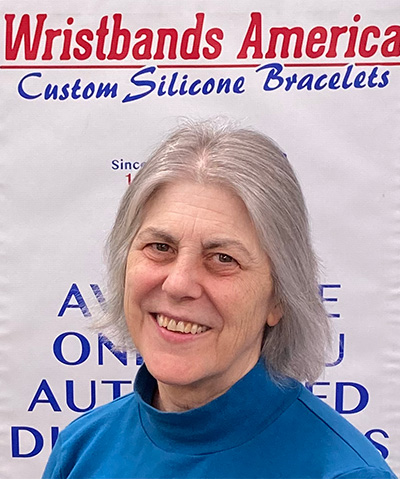
Maggie Guglielmo
Wristbands America (asi/98418)
Years in Promo: 42
What’s your best advice?
“Keep your paperwork organized. Keep track of monthly summaries of all sales. Make notes when you talk to customers. That’s probably the most important thing in this industry unless you have a photographic memory. When I started out, I had a Rolodex, and every time I called my customers, I would take notes about what we talked about so I could refer to it.”
Maggie Guglielmo has been in the promo business since the early 1980s, as a partner in a Houston firm that did sign supplies and offered promotional products on the side. Thirty years ago, she moved to Ohio and dove into promotional products full time. A few years ago, she was ready to hang up her distributor hat, but as Guglielmo notes: “You never retire out of this industry.”
What’s the biggest change you’ve seen in the industry since you started?
“Computers and the internet changed everything. I remember getting hardbound registers of products four times a year from ASI. Eventually, it all went online. That’s the biggest change.”
She had been buying wristbands from a small supplier, and every time she placed an order, she would ask the owner whether he wanted to sell his business to her. Eight years ago, he finally took her up on her offer, and after several years of negotiations, Guglielmo found herself the proud owner of a supplier of Made-in-the-USA silicone wristbands.
What’s an important lesson you’ve learned over the years?
“I made a decision years ago in Houston that I didn’t want to get the clientele that would require me to dress up. I never wanted to put on a suit. I wear jeans every day. I was never going after Exxon. There’s a lot of business out there, just with small mom-and-pop shops.”
“It’s a nice little cottage business,” she adds. “My sister-in-law works for me, and we have so much fun together.”
Guglielmo tries to keep things lighthearted with her business. For instance, she had an order recently for dark blue wristbands with the phrase, “Don’t be sh***y” printed on them. She decided to create her own version of the profane wristbands, printing instead on brown silicone. “I give those out all the time,” she adds. “It’s a fun industry.”
What keeps you motivated?
“I like being my own boss. I didn’t have to learn anything from anybody. I didn’t have anyone tell me what to say. I make my own hours.”
What’s your best advice?
“Keep your paperwork organized. Keep track of monthly summaries of all sales. Make notes when you talk to customers. That’s probably the most important thing in this industry unless you have a photographic memory. When I started out, I had a Rolodex, and every time I called my customers, I would take notes about what we talked about so I could refer to it.”
What’s the biggest change you’ve seen in the industry since you started?
“Computers and the internet changed everything. I remember getting hardbound registers of products four times a year from ASI. Eventually, it all went online. That’s the biggest change.”
What’s an important lesson you’ve learned over the years?
“I made a decision years ago in Houston that I didn’t want to get the clientele that would require me to dress up. I never wanted to put on a suit. I wear jeans every day. I was never going after Exxon. There’s a lot of business out there, just with small mom-and-pop shops.”
What keeps you motivated?
“I like being my own boss. I didn’t have to learn anything from anybody. I didn’t have anyone tell me what to say. I make my own hours.”

K.C. Fields
K.C. Fields & Associates (asi/822150) and Eversole Run (asi/53040)
Years in Promo: 42
What’s your best advice?
“Number one, you’ve got to work hard. You just do. I don’t care what you’re doing, you have to work hard. Number two, you have to be honest, and if you don’t know the answer, you have to get back to them. Don’t just fly off and say you can deliver. Number three, and most important, and this is where a lot of young people leave themselves out, you have to follow up. It’s such an important part of being successful.”
Back in the late 1970s, K.C. Fields was working for Holloway Sportswear, selling letterman jackets and other sporty apparel to schools. One day, Fields recalls, the boss called him into the office and told him he’d just discovered something called “advertising specialties” and asked Fields to figure out what this market was all about. So, Fields hopped on a plane from his native Columbus, OH, to head down to a trade show in Dallas – the plane ride and the trade show both firsts for the young salesman. “I went out and found a whole new market for us – a whole new world for Holloway Sportswear and myself,” he says.
What’s the biggest change you’ve seen in the industry since you started?
“It was all about faxing, and if you really wanted to have good artwork, you’re going to send that artwork overnight with your order. There was no such thing as the internet. This industry is just so much more high-tech than it used to be, and everything’s fast, man. If you don’t do it fast, you’re not going to be around long, not only in this industry, but any industry.”
In 1981, Fields decided to strike out on his own, founding the multi-line rep business he still runs today. “This industry has been really good to me,” he says. “I’ll never forget those early days.” In 1997, Fields and his wife decided to launch their own apparel supplier, Eversole Run, in addition to being multi-line reps. The decision brought a certain amount of stability, Fields says. “As a multi-line rep, you could lose a line anytime,” he says. “We lost a pretty big line, and that’s when I decided to become a supplier too.”
What’s an important lesson you’ve learned over the years?
“As long as there are suppliers, there will be a need for multi-line reps. Not all suppliers can afford or want to go out and have direct company reps, so as long as you’ve got smaller suppliers in this industry coming in, you’re always going to have a need for good multi-line reps. There are multi-line reps out there saying, ‘Boy, I don’t know if we’re going to be around much longer.’ I don’t believe that. I think 100% you will be around if you work hard because there are going to be people who need them.”
Over the next few years, Fields says, he expects to move more business responsibilities over to his son Michael. Eventually, he’ll retire and perhaps buy a place in Florida to stay warm in the winter. “I see that happening in the future, but not the near future,” he says.
What keeps you motivated?
“Most of my friends are in this industry and from out of town, not in Columbus, OH, so I really enjoy still being around and talking with and working with my friends. I’m still that kind of guy too that’s motivated by income. We make good money, so that’s a big part of what keeps me motivated, to be honest.”
For now, he still enjoys all the relationships he’s made in the industry and seeing the way end-users’ faces light up when they receive branded merch, whether it’s a nice sweater, cap or something else. “They love having a promotional product to use and wear, and I like seeing that,” Fields says.
What’s your best advice?
“Number one, you’ve got to work hard. You just do. I don’t care what you’re doing, you have to work hard. Number two, you have to be honest, and if you don’t know the answer, you have to get back to them. Don’t just fly off and say you can deliver. Number three, and most important, and this is where a lot of young people leave themselves out, you have to follow up. It’s such an important part of being successful.”
What’s the biggest change you’ve seen in the industry since you started?
“It was all about faxing, and if you really wanted to have good artwork, you’re going to send that artwork overnight with your order. There was no such thing as the internet. This industry is just so much more high-tech than it used to be, and everything’s fast, man. If you don’t do it fast, you’re not going to be around long, not only in this industry, but any industry.”
What’s an important lesson you’ve learned over the years?
“As long as there are suppliers, there will be a need for multi-line reps. Not all suppliers can afford or want to go out and have direct company reps, so as long as you’ve got smaller suppliers in this industry coming in, you’re always going to have a need for good multi-line reps. There are multi-line reps out there saying, ‘Boy, I don’t know if we’re going to be around much longer.’ I don’t believe that. I think 100% you will be around if you work hard because there are going to be people who need them.”
What keeps you motivated?
“Most of my friends are in this industry and from out of town, not in Columbus, OH, so I really enjoy still being around and talking with and working with my friends. I’m still that kind of guy too that’s motivated by income. We make good money, so that’s a big part of what keeps me motivated, to be honest.”

Rick Land
Landmark Promotions (asi/248490)
Years in Promo: 42
What’s your best advice?
“Sales is a personality thing. I don’t know anybody in sales who has a lousy personality. I think the more humor you put in things, the more of a smile you put on someone’s face, the better you’ll be. But you have to be tenacious. You can’t take no for an answer. It used to be when I walked into a purchasing agent, it was almost an adversarial thing. They wanted to buy something and didn’t want to pay anything. I wanted to sell stuff and make money. Nowadays, kids say they can buy things cheaper online. You’ve got to be adaptable to how things go. You’ve got to keep coming back.”
Rick Land got his start in the promo business in the early ’80s. A recent grad with a degree in journalism and advertising, he had been working at a radio station when he met a man who sold coffee mugs – and discovered selling promo items was much more lucrative than radio work. “I had no idea up till then the industry existed,” he recalls. “I was really interested in selling stuff. I thought it was fun.”
What’s the biggest change you’ve seen in the industry since you started?
“The base items people want probably will never change – T-shirts, pens and surprisingly calendars. Coffee cups are a constant. What has changed for me is the attitude of people. People don’t want to work as much as they used to. I don’t find people are as tied to work as they used to be.”
Something just clicked for Land, who was featured in a 1985 issue of Counselor magazine as one of the winners of a “New Faces in Specialty Advertising” contest. According to the writeup, Land took to promo “like the proverbial duck to water” and peers described him as having a “dynamic, entertaining and rapid-fire personality coupled with creativity, good instincts and an incredible persistence.”
What’s an important lesson you’ve learned over the years?
“I used to work with a company in Germany. I’d come into the office at 5 a.m., and it was early afternoon there. I got into the habit of working from 5:30 a.m. to 5:30 p.m. – 12 hours a day. When I turned 65, I cut back to 10 hours a day, but I couldn’t stand it, so I’m back to 12 hours a day.”
By the early 1990s, he had started his own distributorship, Landmark Promotions, focusing primarily on a stable of construction clients. “I would fly all over the U.S. selling little safety programs,” Land says. He remembers setting up company stores for clients, producing a catalog that got mailed out to construction job sites and fielding orders on the fax machine. “I’d come in every morning and get two, three or 20 orders from different places.”
What keeps you motivated?
“I really consider working for yourself to be kind of the end-all. I’m responsible for everything I do. That means I can take pride in what I’ve done.”
Now in his early 70s, Land says that communicating with the younger generations can be something of a challenge. “They don’t want to talk to grandpa,” he jokes. Still, he adds, he has no intention of retiring. “I would really like to be the oldest guy still working in the industry,” Land says. “I think that would be cool.”
What’s your best advice?
“Sales is a personality thing. I don’t know anybody in sales who has a lousy personality. I think the more humor you put in things, the more of a smile you put on someone’s face, the better you’ll be. But you have to be tenacious. You can’t take no for an answer. It used to be when I walked into a purchasing agent, it was almost an adversarial thing. They wanted to buy something and didn’t want to pay anything. I wanted to sell stuff and make money. Nowadays, kids say they can buy things cheaper online. You’ve got to be adaptable to how things go. You’ve got to keep coming back.”
What’s the biggest change you’ve seen in the industry since you started?
“The base items people want probably will never change – T-shirts, pens and surprisingly calendars. Coffee cups are a constant. What has changed for me is the attitude of people. People don’t want to work as much as they used to. I don’t find people are as tied to work as they used to be.”
What’s an important lesson you’ve learned over the years?
“I used to work with a company in Germany. I’d come into the office at 5 a.m., and it was early afternoon there. I got into the habit of working from 5:30 a.m. to 5:30 p.m. – 12 hours a day. When I turned 65, I cut back to 10 hours a day, but I couldn’t stand it, so I’m back to 12 hours a day.”
What keeps you motivated?
“I really consider working for yourself to be kind of the end-all. I’m responsible for everything I do. That means I can take pride in what I’ve done.”

Paul Kraml
Kraml Design (asi/245602)
Years in Promo: 42
What’s your best advice?
“Work hard, be social and give away lots of (useful) self-promos everywhere you go to everyone, even if they’re not the potential client. You never know who they know. Quality pens are still number one. If you’re not a graphic designer, align with one. Offering creative is a bonus and an advantage.”
Around town, Paul Kraml is known as “the pen guy.” Everywhere he goes – whether it’s a New Jersey Devils game or dinner at a local restaurant – Kraml leaves a self-branded pen. (He buys a few thousand a year, so he always has one at the ready.) The practice used to embarrass his family, but Kraml swears by it.
What’s the biggest change you’ve seen in the industry since you started?
“Companies selling direct to the consumer is the biggest change and challenge. Amazing service has to offset the cutthroat pricing to compete. One positive change is all the new ways to imprint items.”
“I get business out of it,” he says. “People call me. … People post the pen I gave them on the internet. … On vacation, people tell me they saw my pens.”
The trick, though, is that they have to be high-quality pens; no one will remember fondly the guy who gave them a pen that doesn’t write well, Kraml says.
What’s the biggest lesson you’ve learned over the years?
“Avoid price-hunting customers. Stick to your pricing structure and sell service.”
The power of the self-promo is just one of many lessons Kraml has picked up in his 42 years in the promotional products business. Kraml learned of the industry at an early age: His grandmother worked in the industry when he was a child in the 1960s and would always have “little goodies” around her house. As a teen, he started designing restaurant logos – and it only seemed natural to start selling the products to go with them, whether it was a branded napkin, pen or something else.
What keeps you motivated?
“I love the industry. I love selling, and I love helping clients reach their goals.”
For years, Kraml also worked as creative director and public relations manager for the New Jersey Office of the Attorney General. He retired from his government job a few years ago, but has no plans to hang up his distributor hat anytime soon. “Because I’m a designer, it’s something different every day,” Kraml says. “You’re always creating new things. … It’s just a fun industry.”
What’s your best advice?
“Work hard, be social and give away lots of (useful) self-promos everywhere you go to everyone, even if they’re not the potential client. You never know who they know. Quality pens are still number one. If you’re not a graphic designer, align with one. Offering creative is a bonus and an advantage.”
What’s the biggest change you’ve seen in the industry since you started?
“Companies selling direct to the consumer is the biggest change and challenge. Amazing service has to offset the cutthroat pricing to compete. One positive change is all the new ways to imprint items.”
What’s the biggest lesson you’ve learned over the years?
“Avoid price-hunting customers. Stick to your pricing structure and sell service.”
What keeps you motivated?
“I love the industry. I love selling, and I love helping clients reach their goals.”
ASI Long-Timers
ASI has its own share of long-time employees, chief among them our Chairman Norman Cohn, who has been a promotional products fixture for more than 70 years and recently celebrated his 90th birthday. Cohn and two other company stalwarts share the secrets to their longevity.
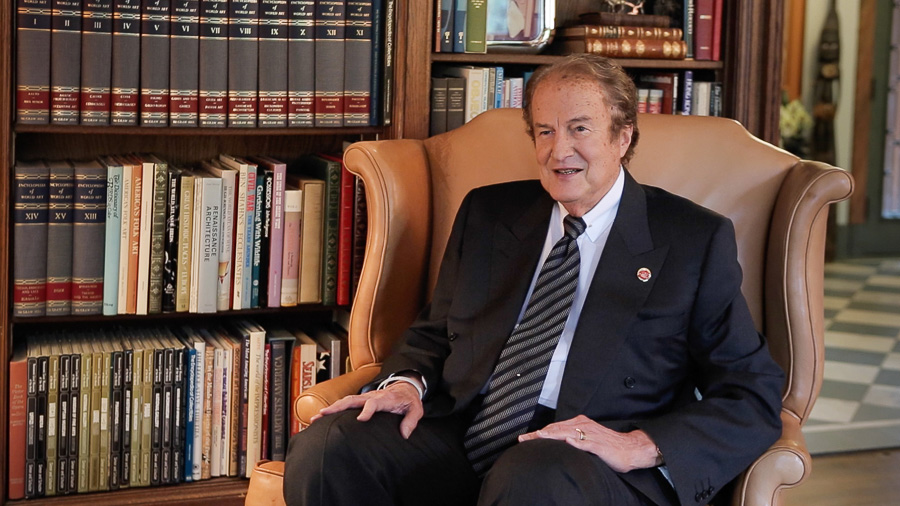
Norman Cohn, ASI Chairman
How long have you been in the industry?
“I’ve been in the industry for more than 70 years. I started as a junior in high school selling Christmas gifts to local businesses in Waterloo, IA, where I grew up. Over the years, by good luck, we acquired additional companies and at one time were the largest supplier (it was a much smaller industry). Once getting involved with ASI, we sold off all the supplier activities and now do not make or sell any products. We are primarily the technology creator and provider for the industry.”
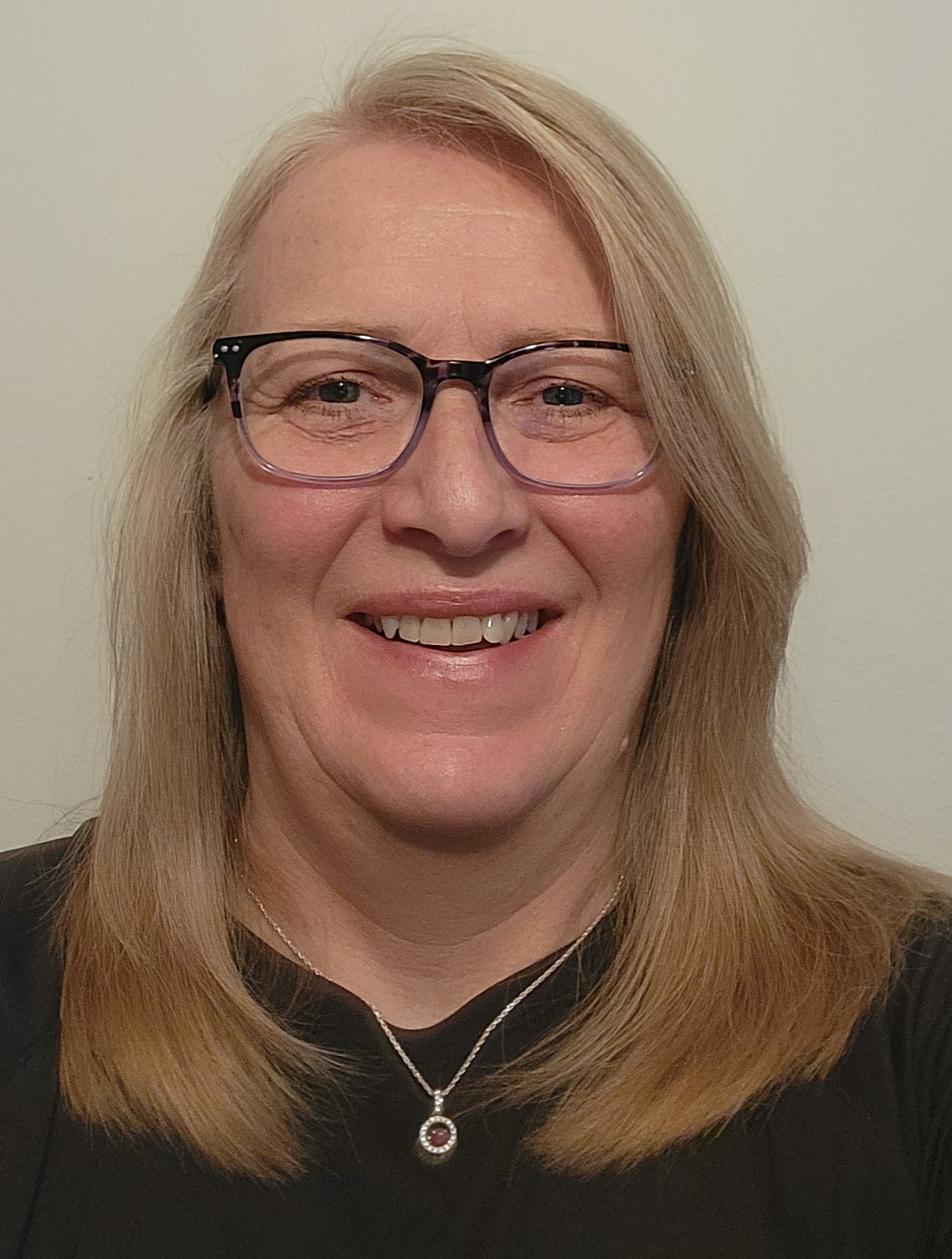
Teri Fender
Lead QA Analyst for ASI Computer
How long have you been in the industry?
“45 years.”
What was your first position here? What’s your current position?
“My first position was processing orders within the poster division (Studio One) of the original Santa Claus Industries. Then, I helped support, design and test all versions of ASICS software as it evolved. My current position is lead QA analyst for ASI SmartBooks and ProfitMaker software.”
What’s the biggest thing that’s changed since you started?
“The integrations that now allow information/updates to quickly be exchanged between ASI/ASICS and our customers.”
What’s your advice?
“In life and work, enjoy what you do, do your best and be proud of what you’ve accomplished. Work hard, but also enjoy your family. Life goes by quickly.”
What keeps you motivated and engaged at work?
“Things are always changing and evolving. It keeps it challenging and interesting.”
What’s the biggest thing that’s changed since you started?
“Many things have changed. When we got involved in ASI, it was primarily a print activity (magazines and directories were all in print). Today, it’s a technology industry headed up by ESP and ESP+. When I first got involved, there were no wearables; it was primarily imprinted pens, calendars and a few other items sold primarily by large ‘direct houses,’ like Brown & Bigelow (asi/148500) and The Vernon Company (asi/351700). Today, it’s an industry of more than 20,000 distributors and suppliers, mostly small family-owned businesses. There have been many other changes in the products that are offered (more than 1 million different products you can put your logo on). When we were a supplier, delivery in 30 days was normal. We broke that code by offering seven-day delivery, and today, delivery (if the product is available and not caught up in some supply chain problem) could be as quick as same or next day.
“Of course, a huge difference is the size of the industry. Many years ago, Congress was discussing disallowing the deduction for promotional products/gifts as an advertising expense. On behalf of the industry, I testified in front of Congress. The senator asked me, ‘Mr. Cohn, what is the size of your industry in annual sales?’ Truthfully, in those days we didn’t know, and I exaggerated my answer and said $300 million. Fortunately, what my mother told me wasn’t true – that if you lied or exaggerated your nose got bigger. In any regard, I bring that up only because in 2022, industry sales were $25.8 billion.

Rob Sholette
Warehouse Manager
How long have you been at ASI?
“41 years.”
What was your first position? What’s your current position?
“I started in shipping and receiving, and today, I’m warehouse manager.”
What’s the biggest thing that’s changed since you started?
“The progress from microfiche to CDs to DVDs to finally online.”
What’s your best career or life advice?
“Work hard and stay patient, and good things will come to you.”
What keeps you motivated and engaged at work?
“The challenge of meeting or exceeding goals.”
“Why the continued growth? Because promotion products work! Although advertising during the Super Bowl might be exciting, before your several-million-dollar 30-second ad, someone else has a 30-second ad and afterward someone else has a 30-second ad, so by the end of a game people have seen many ads and probably forgotten most. However, an end-buyer can spend a few hundred dollars getting a pen, T-shirt, mug or whatever with their name and logo on it and that lasts for a long, long time and is probably used daily.”
What’s your best advice?
“I learned many things from my father. The best advice is ‘listen.’ In other words, you learn nothing by telling people what you know or what you want them to believe. You learn by asking questions and listening to the answers, even if you don’t agree with them. Secondly, remember success in our industry is selling ideas, not price. Believe in yourself. Set goals and live up to what you want people to think of you. Find out what makes you happy and pursue that. If you don’t wake up in the morning happy, no matter how much money you’re making, you won’t ever be happy.”
What keeps you motivated and engaged?
“I love being with my family in business, and I wake up in the morning looking forward to what might be happening that day.”














